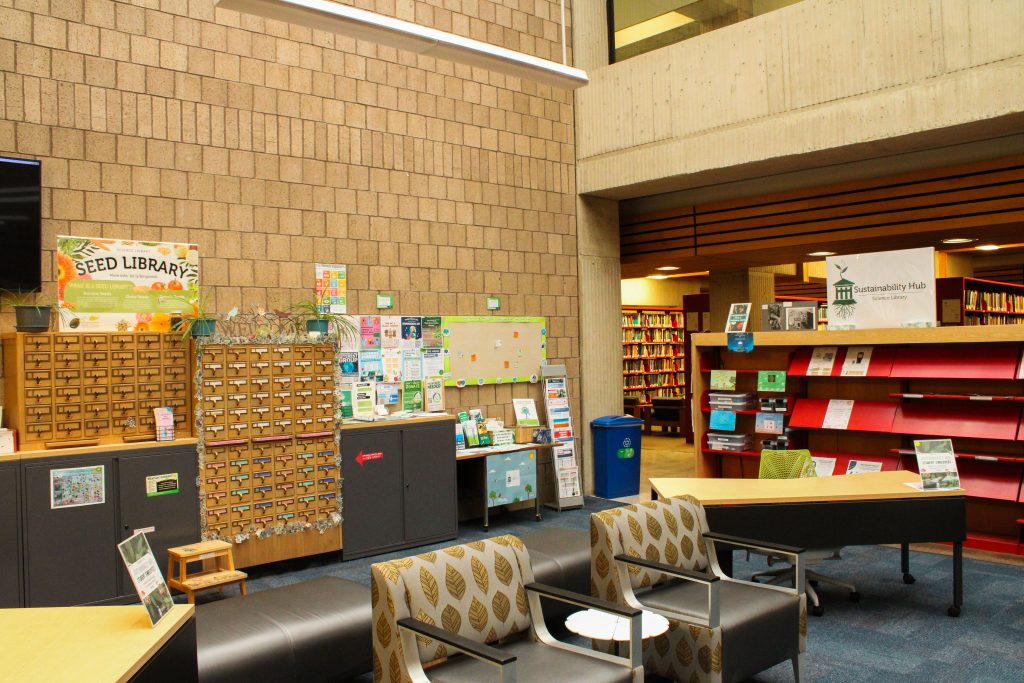The office addresses growing concerns regarding climate change, and through academia, events and initiatives, its leaders have created impactful opportunities for students to get involved with sustainability efforts. As universities across the country produce many tons of waste each year, the office seeks to reduce BU’s impact and help the campus community live more sustainably. More environmentally focused academic studies have been introduced to allow students to get involved in research.
“Green is not just our school color,” wrote Carl Lipo, a professor of anthropology and the committee chair of the Sustainable Communities Transdisciplinary Area of Excellence. “Our campus operation mindset simultaneously addresses environmental impacts, issues of equity and economics.”
He emphasized that an institution as large and diverse as BU needed a centralized location to facilitate sustainability efforts. The Office of Sustainability allows for changes, including reducing waste and inspiring students to get involved, to occur at all levels of the University system, from classrooms to research.
BU has already taken steps toward reducing campus waste through various policies and initiatives. Pam Mischen, the University’s chief sustainability officer, described the Office of Sustainability’s work toward the SUNY goal of a near-100 percent reduction of single-use plastics across campuses.
“The University has a Sustainability Committee that has been tracking the development of this policy and will oversee its implementation,” Mischen wrote in an email. “The University [also] passed a balloon policy in August 2023 and [is] in compliance with the [statewide] ban on plastic bags.”
Over the next several years, all SUNY campuses will phase out single-use plastics [HYPERLINK https://www.bupipedream.com/news/campus-news/suny-phasing-out-single-use-plastics/150709/], aiming for a total reduction for products including plastic silverware, water bottles and balloons. Many items marked for reduction, like beverage bottles and food service products, have a final completion date of August 2027. The 2023 balloon policy restricts the number of balloons used in outdoor events, aiming to prevent balloons from becoming entangled in trees and wildlife and posing a risk to the environment. Balloon wreaths or displays fixed to a stationary object will be allowed inside buildings if the balloons are not separated.
The Office of Sustainability has also played a major role in encouraging student involvement and environmental consciousness. This past weekend, the office collaborated with the American Red Cross, United Way of Broome County, Southern Tier 8 and Broome County Planning to hold their first climate change summit, which brought the community together to tackle the climate crisis in Greater Binghamton. Martin Larocca, a University sustainability manager, highlighted other events the office has hosted, including the Annual Earth Day Festival and the Campus Race to Zero Waste competition.
“We have several new projects that we are working on that will focus on expanding sustainability knowledge and engagement for faculty, staff and students,” Larocca wrote in an email. “We plan to host new events in the upcoming year and develop a green office certificate.”
The office provides both undergraduate and graduate students with hands-on experience in environmentally focused fields of study. The University offers majors in environmental sciences and environmental engineering, as well as minors in environmental studies and sustainability, and graduate students can study sustainable communities, which focuses on sustainability in local governments and communities. There are also course offerings dealing with sustainability spanning 30 departments, from cinema to political science.
“The Office of Sustainability examines all aspects of our operations and works with campus leaders to reduce our carbon footprint wherever possible,” Lipo wrote in an email. “Changes implemented by the office will contribute to the long-term health of our local community, while also making our campus more resilient to the impacts of climate change.”



